CAMFED Tanzania and the Global Partnership for Education (GPE) host CSO roundtable
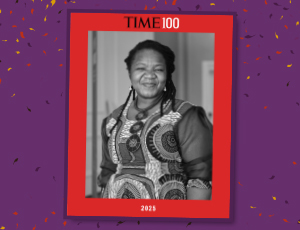
TIME100 Most Influential People
CAMFED CEO, Angeline Murimirwa, named to TIME’s list of the world’s 100 most influential people.
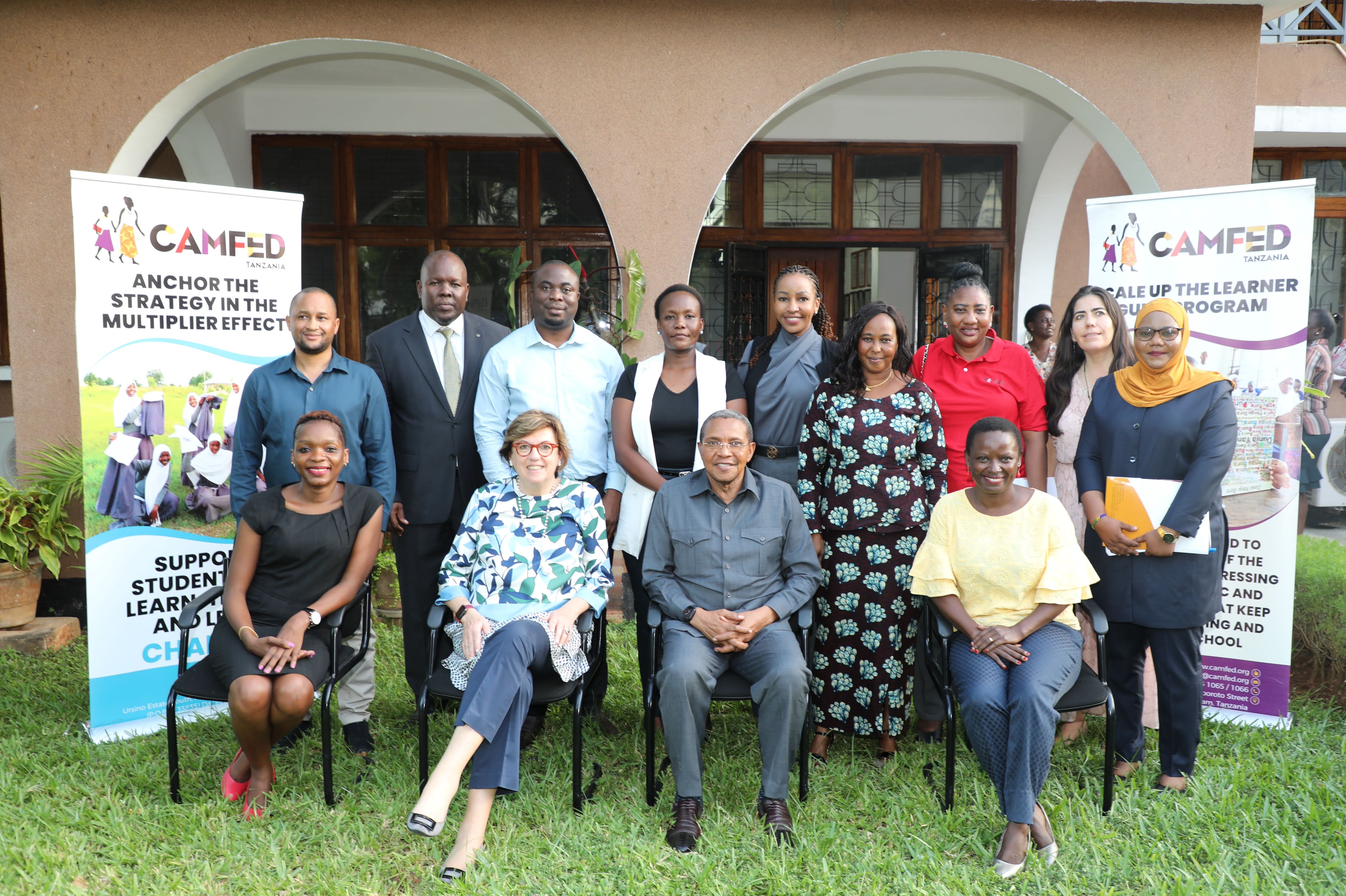
CAMFED Tanzania and the Global Partnership for Education (GPE) host CSO roundtable

On November 29, 2023 CAMFED Tanzania welcomed H.E. Dr. Jakaya Mrisho Kikwete, former President of the United Republic of Tanzania and Board Chair of the Global Partnership of Education (GPE), along with the GPE’s Chief Executive Officer, Ms. Laura Frigenti, as we convened a roundtable with our Civil Society Organization (CSO) partners. Together, we are advocating for education and contributing to policy dialogues by sharing best practice, experiences and expertise in support of education system transformation.
Civil society organizations are key drivers of GPE’s mission and are critical in keeping education high among governments’ priorities.
The meeting came a day after we joined a host of national and international education advocates to speak at the 3rd Annual International Quality Education Conference (IQEC) hosted by the Tanzania Education Network (TEN/MET).
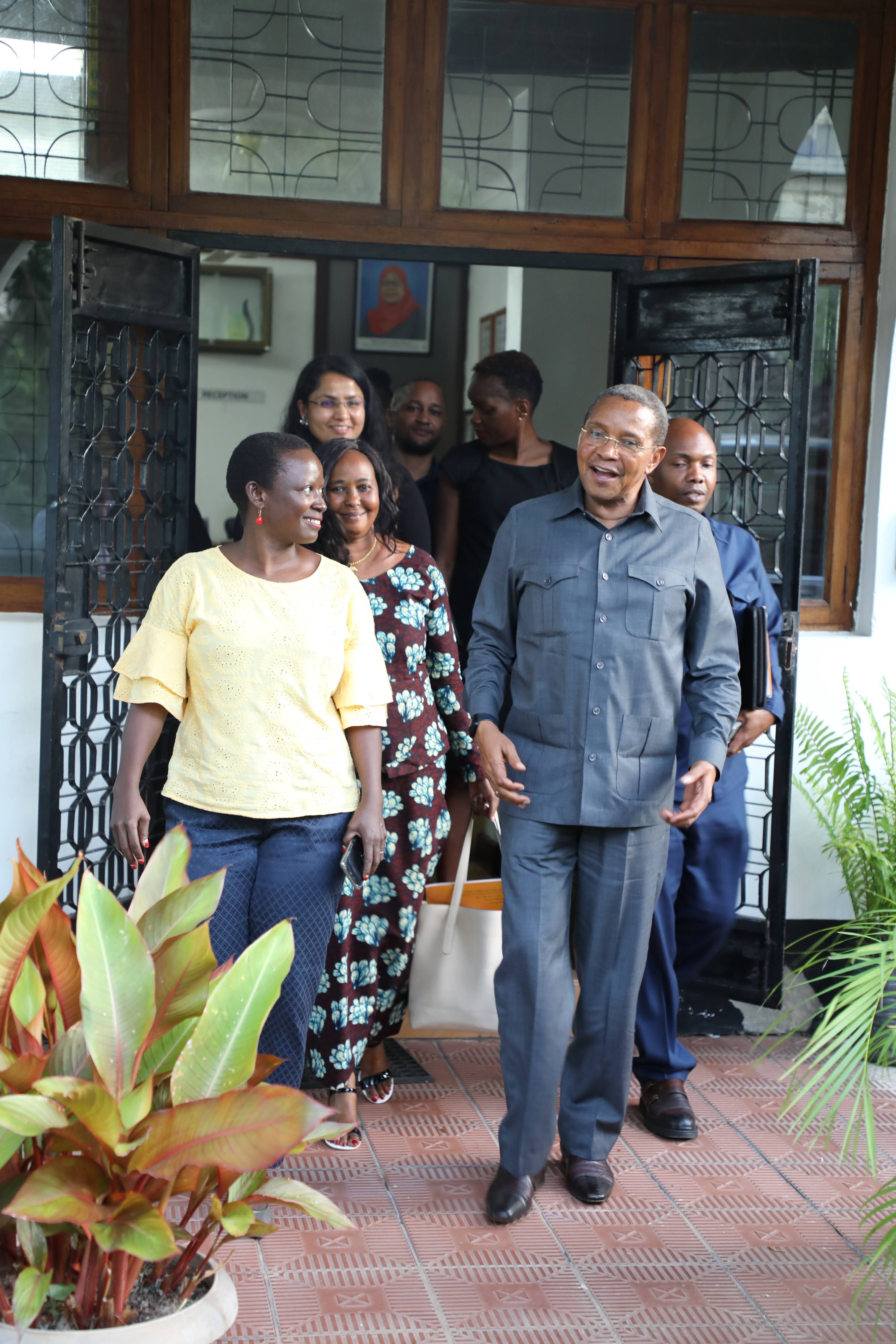
Representatives from TEN/MET, HakiElimu, Shule Direct, PESTALOZZI, UWEZO, Binti Salha Foundation and Transforming Life Tanzania joined the GPE at our offices to underscore the need to prioritize education as a cross-cutting part of any policy discussion, and to take a collaborative approach to tackling the multiple challenges in the sector, especially for girls.
The delegates urged governments to prioritize investment in education in their policy commitments – with a clear understanding that education is a fundamental human right. It also cuts across and benefits all sectors of the economy – from agriculture to healthcare – as the route to sustainable development. The group discussed the importance of education and skills development in supporting young people to transition from the informal economy and subsistence farming to secure jobs and climate-smart agriculture, with Dr. Kikwete underlining the need for families to thrive, not just survive. We noted that the challenges to education need to be addressed holistically, for example by ensuring girls can learn in safety, without the threat of early pregnancy or early marriage, which means addressing each individual’s financial and social needs.
It is very important for us to look at education as a holistic agenda. It touches every sector of our economy, of development. And most importantly, it will be very important for us to look at education from a human rights perspective. Children need to go to school - this is a basic need. The information, knowledge, that opportunity to self-determine is a human right.Faraja Kotta Nyalandu - Board Chair of the Tanzania Education Network (TEN/MET) and CEO of Shule Direct
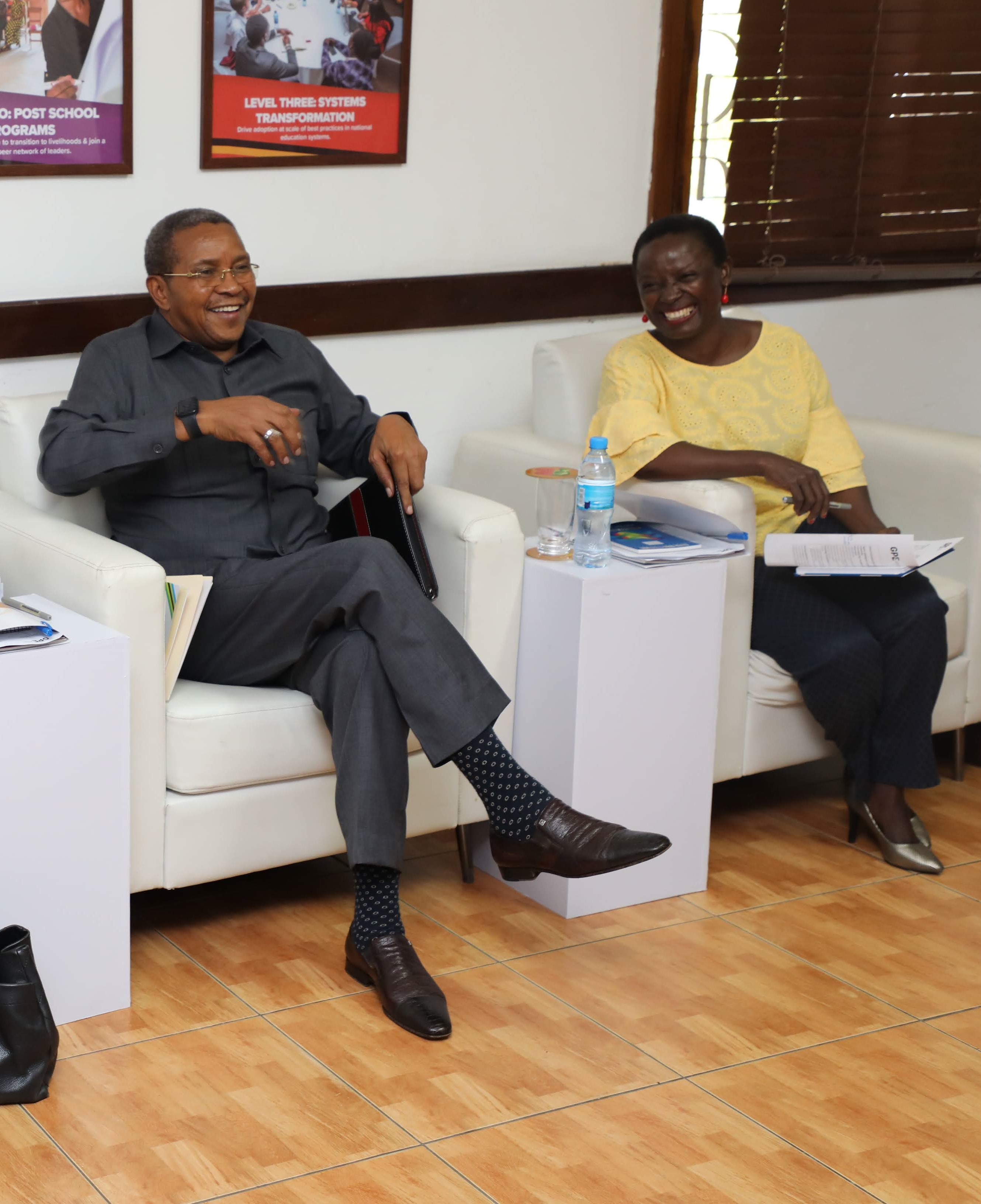
The Global Partnership for Education (GPE) is the largest global fund exclusively dedicated to reshaping education in lower-income countries. Operating as a unique, multi-stakeholder partnership, GPE works towards delivering quality education to ensure that every child, regardless of gender, has access to hope, opportunity, and agency.
For the past two decades, GPE has been actively disbursing funds and providing support to develop robust and resilient education systems in countries marked by extreme poverty or conflict. The focus is on enabling more children, particularly girls, to receive the education necessary for personal growth and contribution to building a more prosperous and sustainable world.
CAMFED has developed a proven, community-led model that helps girls to thrive in school, and equips them with the skills and community support they need to succeed. Led by young women once at the margins of society, we partner with communities and governments to transform education systems. CAMFED is an approved GPE grant agent and was recently selected by the Ministry of Primary and Secondary Education to support delivery of Zimbabwe’s GPE-funded Girls’ Education Accelerator Program.
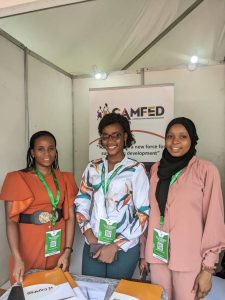
Elected members of the CAMFED Association of women leaders educated with CAMFED support joined Lydia Wilbard at IQEC 2023: Maua, Sandra and Shamsa shared their expertise and listened and learned over the 3-day conference
GPE’s leadership had addressed participants at the 3rd Annual International Quality Education Conference (IQEC) hosted by the Tanzania Education Network (TEN/MET) in the previous days. CAMFED’s Executive Director for Learning and Engagement, Lydia Wilbard, joined a panel discussion on early marriage and teen pregnancy alongside education experts from the Education Coalition of Zimbabwe and the World Bank. They urged listeners to focus on the underlying causes of teen pregnancy, and the need to ensure quality education for all children, proven to delay pregnancy and marriage.
The panel discussed the challenge of efficient and equitable use of financing to address the issue, the gap between policy and implementation, how to address stigma, and how to improve home and school learning environments, galvanizing communities to ensure that students are supported and motivated to learn.
I think it's clear what needs to be done. We are just not bold enough to invest enough. Because it's a web - you can't tackle one issue and address all of them. We need to collaborate and make sure that we're intentional. For example with the re-entry (policy) - the guidelines allow the girls in Tanzania to come back (to school), but if you interview the girls who have managed to come back, look at the challenges they are facing...the schools need them to have uniforms, to have counter books, to provide food... who is providing those things, especially for girls who do not have parents? So if someone has food, offers it to the girls (and exploits them), and they get pregnant - how do we address that? How do we address the hunger? What works are targeted mechanisms - every child has different circumstances.Lydia Wilbard speaking at IQEC 2023
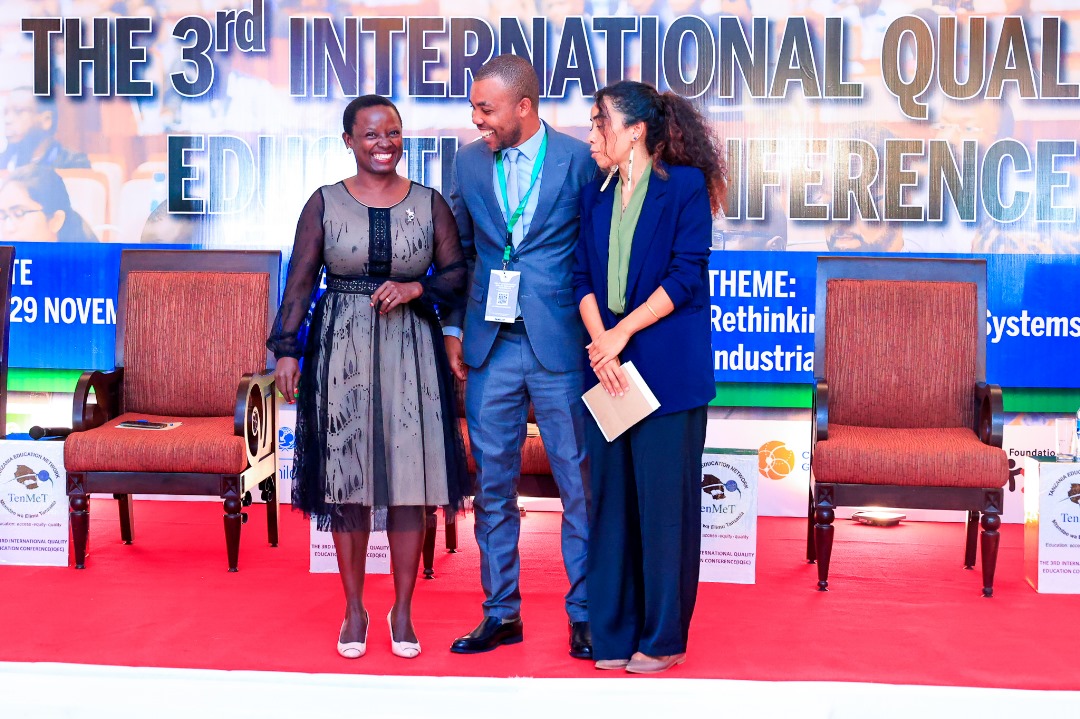
“It takes intentionality to follow up with the girls who are still out of the system, even with all the laws in place,” Lydia said, urging everyone to host the next meeting directly in girls’ communities, to see and understand their circumstances. In discussions with education experts Gemma Todd from the World Bank and Clemence Nhiliziyo from the Zimbabwe Education Coalition she called for a switch of focus, especially on the profiles of those who get girls pregnant, in order to develop targeted interventions. “What works are targeted mechanisms – every child has different circumstances.” Lydia went on to describe the combination of financial and social support offered by CAMFED. She leaned on her own life experience to explain that poverty and lack of education also leads to poor decision-making, and that role models and mentors are essential for vulnerable girls – describing the Learner Guide model, and our partnership with the government to roll out this peer mentorship program across the country.
Watch our IQEC 2023 panel (Youtube)Georgia Scarisbrick £175
Maryann Barkus $14
Pavur Sundaresan $316
Robert Lauck $27.7
Aann Golemac $10.9
Stephanie Boudreau $42.4
David Clifton $158
Cynthia Daneshfar $10.9
William Rutcosky $400
Kaisi Liu $6.7
ANN KINCAID $526
Nickey Hagman $29.8
Wendy Luo $158
Nina Hamilton $158
Corteria Baxter $42.4